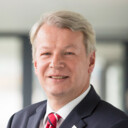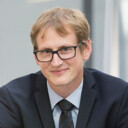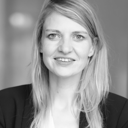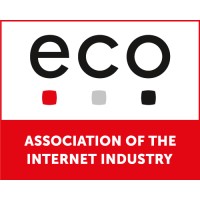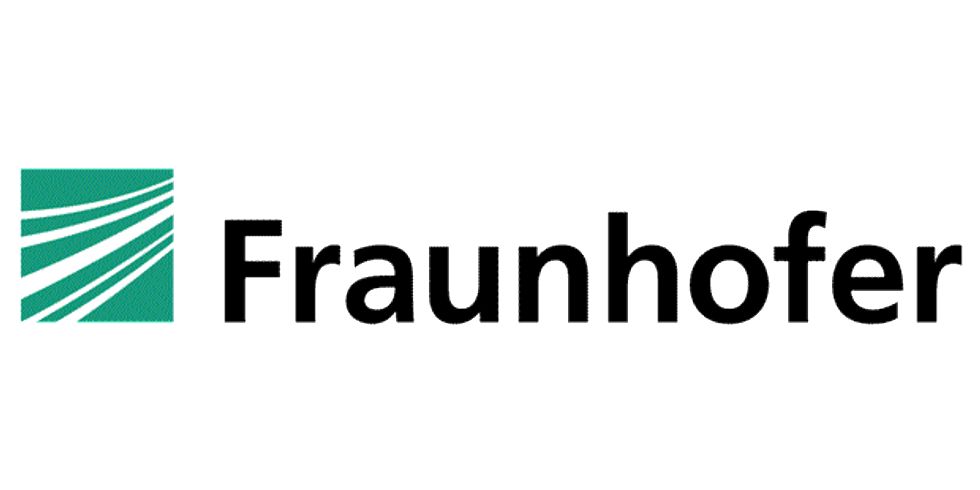Digital Villages Research Project
How can innovative digital technologies help to ease the lives of people in rural areas? Learn more from Hanna von der Au’s interview with Fraunhofer Institute on the German “Digital Villages” research project

© gan chaonan| istockphoto.com
Hanna von der Au: What lies behind the German “Digital Villages” (Digitale Dörfer) research project and to what extent can digital services and technology contribute to improving interaction and life in rural areas?
Professor Liggesmeyer: Our primary aim for the “Digital Villages” research project was to solve or at least mitigate challenges in rural areas in concrete terms, for example in relation to local supply. Most food is produced in rural areas, yet the shops located there have difficulties surviving economically. Our question was: How do we create a system that connects this multitude of producers and providers with their customers, who are spread out across the area?
In viewing this scenario, we were sure that we could use digital means to create something useful for all parties involved, namely by providing the end customers with a local offer in a convenient format and enabling the providers to enter a larger market, which would help keep them afloat. To achieve this, we devised a special system coupled with participatory logistics, which was explicitly aimed at encouraging people to engage in things like picking up a package on their way home from the office. Our hypothesis was that there would be enough people who would want to do this. But it’s only a hypothesis as long as it hasn’t been proven. And that’s why we set up and successfully evaluated such solutions in pilot regions. That was the starting point.
Steffen Hess: We started the “Digital Villages” project in 2015 with the aim of investigating the challenges of today’s increasingly digitalized life in rural areas. Until 2017, the sponsoring ministry saw it as very important to focus on the topic of volunteering and to provide new, more flexible access to voluntary activities, which of course always results in strengthening the sense of unity.
With local retailers, for example, we initiated a regional online marketplace with an application for the delivery of ordered goods by volunteers. The local supply was carried out via participatory logistics. It was very important to the volunteers involved not to deliver the parcels to the packing station, but in person. Above all, the volunteers were intrinsically motivated by the chat they had when delivering the parcels at the front door. To a certain extent, the volunteers also regulated the system themselves. For example, if they noticed that a person who ordered a relatively large amount was not in need, then the volunteers purposefully did not conduct the delivery. In some cases, they also organized themselves into parallel groups via WhatsApp in order to coordinate their efforts. These solutions also contributed to strengthening the sense of unity.
Von der Au: 56 million people in Germany live in rural areas. In contrast to big cities, this also results in other specific challenges such as the lack of medical care in rural areas or the lack of mobility options. In your view, to what extent is digitalization part of the solution for solving specific problems of rural life?
Professor Liggesmeyer: For some time now, we have been researching medical solutions that are also aimed at rural areas – for example, in the field of telemedicine. Here we are not only thinking of the familiar “online consultation with a doctor” via standard conference systems, but intend to investigate high-performance medical services.
One use case, for example, is a person with a chronic illness who needs close monitoring, but who might not be able to receive this service at their place of residence because there is no doctor in private practice. In cooperation with our Center for Digital Diagnostics and the Fraunhofer Institutes for Cell Therapy and Immunology (IZI) in Leipzig and Potsdam, we are developing medical diagnostic procedures designed to be used by medical laypersons.
The fundamental idea is to simplify the procedures so that, in rural areas, older people who might no longer be particularly mobile and who live in areas where public transport is not really well developed are in a position to regularly record their own health parameters. This data must then be transmitted and assessed and handled in an appropriate manner. In particular, this also relates to data protection – involving not only protection against falsification or loss of data and IT security in general, but also the protection of billing systems and payment transactions. Our idea is not to develop such services completely from scratch for each application, but rather a standard platform that can be largely adapted to the respective region’s needs.
Steffen Hess: For us, it is an important and central message that digitalization, in particular, can solve current challenges that are present in rural areas. However, especially in terms of local supply and mobility, these are usually market-based business models with deficits, which poses a challenge. In order to achieve a sustainable cost-benefit calculation, creative business models are needed, such as the “corner shop,” which is then supported by co-op members. These aspects need to be considered in projects from the very beginning, rather than, for example, thinking about an expensive citizens’ bus service that can be booked digitally to run at frequent intervals and which would ultimately not be financially viable.
Von der Au: The social aspect also includes the fact that digitalization must bring people on board and enable the participation of all. To put it bluntly: The best digital solution is of no use if people do not use it. What is the best way – using the “Digital Villages” project as an example – to involve and integrate all stakeholders and to have them seize and participate in the opportunities of digitalization?
Steffen Hess: Citizen participation poses a real challenge. First of all, it is important to meaningfully align the political discourse with the actual situation at the grass roots level because the political discourse often conveys a different picture than what is actually encountered in practice. In order to generate participation, it is crucial to make the concrete benefits clear. If you were to go to “location A” tomorrow to hold a workshop on “Citizen participation in the digitalization of rural areas,” you’d more or less have nobody attending. We’ve experienced that ourselves; you’d end up just sitting at the participation workshop with about three people. That experience was a turning point for us and led to the decision to take the whole process into our own hands. If you make the topic more concrete – for example, “Improving the connection to public transport” or “Revitalizing the village center” – then you’ve got something specific that concerns and appeals to the people.
You have to attract a group of committed people who are intrinsically motivated to take part in the project on a long-term basis. In addition, the group of committed people must be representative of the village community and must have a certain degree of influence in the community. What is also needed is a good participation process that allows people to participate in decision-making and also works well with organizations such as local councils. This implies a balance between areas where citizens have a say and where the local council sets the framework. Operationally, this can mean, for example, that the local council decides which two projects are to be implemented and citizens are then allowed to participate in the implementation process, perhaps deciding what is to be done first or whether the playing field is to have a play street. Under such circumstances, very successful participation can be realized in numerous locations.
Professor Liggesmeyer: Mr. Hess’ comments are pretty clear. The core message can certainly be applied across the board. If you go somewhere and say: We want to digitalize something here, then normally nobody is interested. If, on the other hand, you go and say: We would like to do something very specific for you which, beyond doubt, should be done by digital means, then that is something different.
Von der Au: In the media, the debate about digitalization is at times extremely negative. Keywords: digitalization as an energy consumer, AI as a job killer, hate speech, or the GAMA dominance. To counter this attitude, what counter-headline or change in people’s mind-set would you propose, with a focus on the opportunities of digitalization?
Steffen Hess: As I see it, it is precisely these types of debates that represent the reasons why a person should definitely help shape the digital transformation process. As a citizen, as a person in the process of digitalization, I must bring a strong voice to the table, even at a critical level – and that is legitimate – but it has to be done in a constructive way.
I have to make sure that when AI is used, it also follows certain ethical principles. With my own contributions to platforms for social interaction at the village level, I can help to ensure that something like hate speech doesn’t stand a chance. This is something that we also see quite clearly in our digital village platforms, because they are far less anonymous. The people at the local level can temper tendencies towards hate speech relatively quickly via group dynamics because, after a few posts, the people in the village will know who is posting these and will then also personally seek out a discussion. Criticism is certainly also part of it, as is letting off steam, but on a constructive level.
Professor Liggesmeyer: The critical questioning of things that bring about a strong transformation is nothing new. This has always been the case in human history and was no different in the days of industrialization. At the moment, the focus is on digitalization and its effects. I think this is a natural process that also needs to be gone through. It makes sense to ask certain critical questions and to have to deal with answers that are perhaps uncomfortable. If it works sensibly, it gets to improve the system in the end.
Von der Au: Which societal challenge would you personally like to see being resolved and to what extent can digitalization already be a part of the solution in overcoming this challenge?
Professor Liggesmeyer: As a research institute, we don’t simply wish for something – we do it. For instance, we are currently stepping up our involvement in the areas of health, pharmaceuticals, medicine, and care because we see a need to catch up in various areas. To put it in tangible terms, there is currently a Fraunhofer project in which we are participating that deals with the automated production of high-performance cancer therapeutics. These therapeutics can currently only be produced manually because they require an individual production process. This makes these drugs extremely expensive and means that they are only available in small quantities. The automated production of such medications can only be achieved with digital means. A flexible, digitally controlled autonomous production process is needed if such medications are to be used on a broad basis without skyrocketing costs in the healthcare system.
The same applies to another facet of the health sector: the care sector. The forecasts indicate that, by 2050, we will have a very sharp increase – in fact a tripling – in the number of people in need of care. We already have a care crisis today, with too few carers facing a large and growing number of people who need care. Here, too, I see a remedy only in the form of technical solutions because the number of carers cannot be increased at will.
Steffen Hess: I would like digitalization to finally resonate with people. That we have a situation in Germany where we no longer have to talk about what we should have done three or four years ago, but that we get ahead of the backlog. We are still talking about topics like urban data platforms in rural and urban areas, which are of course a great foundation, but should actually have been there long ago.
I’d like us to maintain the pace we set in pandemic times and not to slow down again. But we are already seeing this downward trend. I also fear this for the health sector. When we no longer have an acute need, we are always a bit sluggish. If, on the other hand, there are suddenly pandemics or external events, then everything suddenly moves at a completely different speed. I would simply like us to be able to somehow maintain that tempo.
Thank you very much for the interview.
About the project:
“Digital Villages” is a part of the broad research and development project “Smart Rural Areas” of the Fraunhofer Institute for Experimental Software Engineering IESE in Kaiserslautern. It investigates how innovative digital technologies can help to support and ease the lives of people in rural areas.
You can read more about the “Digital Villages” research project at: https://www.digitale-doerfer.de/ (in German).
Prof. Dr.-Ing. habil. Peter Liggesmeyer is the Director of the Fraunhofer Institute for Experimental Software Engineering IESE in Kaiserslautern and holds the chair of Software Engineering in the Department of Computer Science at the Technical University of Kaiserslautern.
Steffen Hess is head of the division “Digital Innovation & Smart City” at the Fraunhofer Institute for Experimental Software Engineering IESE in Kaiserslautern and was responsible for the “Digital Villages” research project as Project Manager.
Hanna von der AU is Senior PR Manager at eco – Association of the Internet Industry. She is responsible for the development of communication strategies and concepts, content marketing activities, social media channels, and press releases. The topics closest to Hanna’s heart are diversity, Women in Tech, and sustainability. She coordinates eco Association's #JOINTHESOLUTION campaign, leads the activities around eco's German #LiT - Ladies in Tech initiative, and loves getting in touch with more women in the industry. Her aim is to make the Internet industry more colorful and diverse. Before joining eco in 2019, Hanna worked as a digital campaign consultant with a focus on content generation at a digital consultation agency (for customers like NRW.INVEST, GS1 Germany, Peek & Cloppenburg, Coop, Lufthansa).
Please note: The opinions expressed in Industry Insights published by dotmagazine are the author’s or interview partner’s own and do not necessarily reflect the view of the publisher, eco – Association of the Internet Industry.

